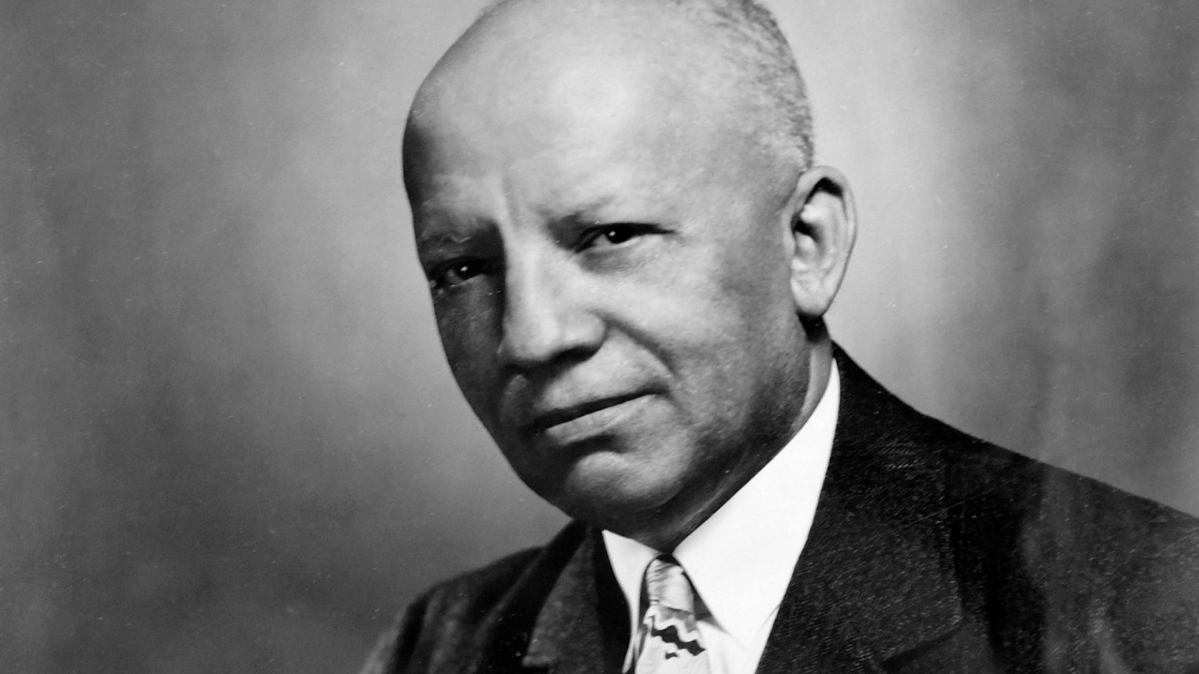Quintessa Williams wrote this piece for Word In Black.
Dr. Carter G. Woodson’s name and influence come to mind when we consider the transformational potential of education.
Generations of academics and students are still informed and motivated by Woodson’s outstanding contributions to Black history, which have earned him the title of Father of Black History. We pay tribute to Woodson’s life, legacy, and influence on what would have been his 149th birthday.
RELATED: Black History Month’s History
A Lifelong Passion for Education
As the son of former slave parents, Woodson was born on December 19, 1875, and his journey started in Virginia. His love of learning was ignited by his parents’ emphasis on education as a path to emancipation. Woodson became the second African American to get a doctorate in history from Harvard University in 1912, following sociologist and activist W.E.B. Du Bois, after earning a master’s degree from the University of Chicago in 1908, despite considerable obstacles during the Jim Crow era.
Woodson established the Association of the Study of African American Life and History in 1915 as a group devoted to researching and valuing Black history after seeing that Black people and their achievements were being left out of popular accounts of American history. Woodson went on to create Negro History Week ten years later, which later developed into Black History Month.
In order to make sure that both Black and white pupils believed that Black ancestry was important to understand, Woodson sought to incorporate Black history into the curriculum of the American school system.
RELATED: Can Black Students’ Educational Gaps Be Closed by Freedom Schools?
The Mis-Education of the Negro
In his scathing yet insightful assessment of the Eurocentric bias of the American educational system and its detrimental effects on Black students, Woodson released The Mis-Education of the Negro in 1933.
He maintained that Black children internalized negative views about their potential and self-worth as a result of a curriculum that ignored or misrepresented Black history. The Mis-Education of the Negro is remains relevant in discussions about educational justice nearly a century later.
Honoring Woodson s Legacy
Generations have been inspired by Woodson’s vision for nearly 150 years. Woodson’s timeless principles and values are embodied in initiatives like Freedom Schools, Afrocentric curricula, and the inclusion of Black voices in history textbooks, even as students, educators, and advocates confront obstacles in 2024, such as attempts to limit instruction on systemic racism and outlaw books by Black authors.
His support serves as a reminder that education must be a vehicle for emancipation and empowerment, even as the struggle for educational equity continues.
Note: Every piece of content is rigorously reviewed by our team of experienced writers and editors to ensure its accuracy. Our writers use credible sources and adhere to strict fact-checking protocols to verify all claims and data before publication. If an error is identified, we promptly correct it and strive for transparency in all updates, feel free to reach out to us via email. We appreciate your trust and support!







